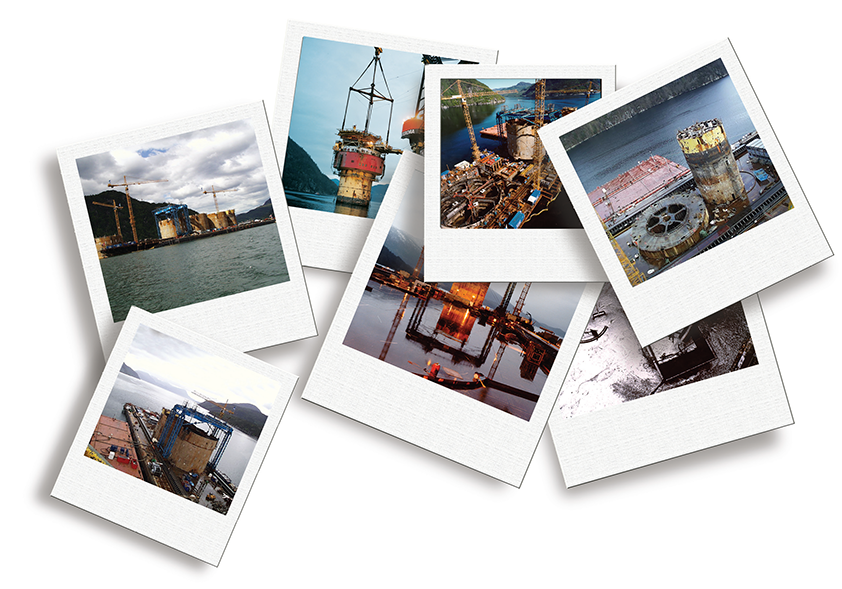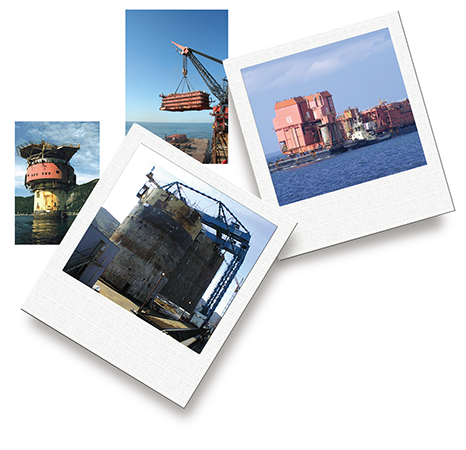
Global capability
Formerly completed in April 2011, Wood Group PSN is the result of a merger between two industry leaders in their own right.
Specifically the two constituent parties were the Production Facilities part of engineering giant Wood Group, and recognised independent brownfield contractor PSN. As such, the merger saw the creation of the world’s leading brownfield service provider with a 26,000 strong workforce operating in more than 35 countries.
Together the new Group, including its sister company JP Kenny, offers numerous advantages to clients in developing their assets, and maximising the returns that can be achieved during that lifecycle. However since the early 1990’s Wood Group has also recognised that the decommissioning of such assets is also part of its life of field remit.
Having held the role of decommissioning manager for 16 years, Ian Prince highlights the Group approach to such activities: “We see that there is potential benefit in recognising in the latter phase of the life of a platform the consideration for decommissioning, and following it all the way through to completion.
“This is not an isolated activity, but one that should be considered as part of a field’s lifespan and therefore requires long-term planning. We have been involved in most of the major decommissioning work that has been carried out in the UK, and when you consider that N W Hutton was the first of these large installations, Wood Group and PSN have followed it all the way through. It is this commitment to decommissioning as a core service, as opposed to treating it like just another project that differentiates us in the market.”
As the N W Hutton project demonstrates, the timeframe for decommissioning projects can span many years from initial studies to actual mobilisation. When Wood Group entered the decommissioning market in 1993, the project was first being looked at, but it wasn’t until 2008/9 that platform was physically removed. Wood Group was the primary engineering contractor selected by BP at that early phase carrying out a scope of engineering, hook-down and cleaning services in preparation for leaving the platform as a normally unattended installation (NUI). When, at a later phase BP decided to remove the structure, it was PSN that was successful in supporting the removal contractor Heerema.
In 1998 Wood Group was also successfully awarded the contract for the disposal of the Shell Brent Spar oil storage buoy, which was a substantial project and a subsequent icon in the decommissioning field. Likewise PSN assisted in the decommissioning of another BP platform, Miller, and taking it into its current state as a helicopter support facility. The subsea element of decommissioning is provided by JP Kenny, which has been involved with the majority of UK subsea decommissioning projects to date. As such, Wood Group PSN is probably the most experienced company in the UK in terms of decommissioning services. What’s more though, the business has managed to retain much of this technical expertise in house, to the immediate benefit of its client base.
 At present one of the largest immediate decommissioning projects taking place in the North Sea is the Shell Brent field, including the four platforms Alpha, Bravo, Charlie, and Delta. Wood Group PSN are holders of a Decommissioning Services Contract (DSC) with Shell, which initially covers taking the Delta platform from production, through cessation of production (Brent Delta ceased production at the end of 2011), engineering down and cleaning, in preparation for future removal by a removal contractor, for which the tender process is underway. The DSC is a substantial contract expected to span several years.
At present one of the largest immediate decommissioning projects taking place in the North Sea is the Shell Brent field, including the four platforms Alpha, Bravo, Charlie, and Delta. Wood Group PSN are holders of a Decommissioning Services Contract (DSC) with Shell, which initially covers taking the Delta platform from production, through cessation of production (Brent Delta ceased production at the end of 2011), engineering down and cleaning, in preparation for future removal by a removal contractor, for which the tender process is underway. The DSC is a substantial contract expected to span several years.
Given the need for early consideration and planning of such projects, Wood Group PSN has quite a significant and prominent role in up front activities and initial studies to determine the different options and concepts available for removal. “A part of our core business is to carry out study work at different levels of detail from liability estimates through to a more technical level,” elaborates Ian. “As well as the North Sea, we are also working at study level in other part of the world such as New Zealand, Trinidad, Ivory Coast, Norway and Gabon in support of the Group’s global organisation. We’re also currently carrying out a number of technical studies for CNR as part of the early stages of the decommissioning of its Murchison platform.”
One of the major issues that the industry has faced in the past with regards to decommissioning has been the unstable nature of this market, which has in turn made it more difficult to secure the investment required to drive this forwards. There is however some movement in the industry with more projects appearing on the horizon, such as the removal contract for the Brent field, and the Murchison platform – both of which Wood Group PSN will be hoping to be involved in.
On a more general level, organisations such as Decom North Sea have played a role in ensuring contractors remain informed and aware of the potentials of the decommissioning business, and thus creating a momentum in the market. This can only be a benefit to Wood Group PSN and the future decommissioning industry in terms of helping to promote stability, and the need for early consideration of decommissioning issues in the long-term. With few others as well positioned as the Group in addressing such concerns, the relative maturity of the North Sea looks set to go some way in achieving the company’s aspirations. “Some time ago we put in place a ten year plan, which amongst other aspects contained an ambition to achieve regular, rather than sporadic decommissioning project work. As part of this, we are looking at whether we can offer a larger decommissioning capability worldwide,” concludes Ian.
Wood Group PSN
Services: Brownfield and engineering services